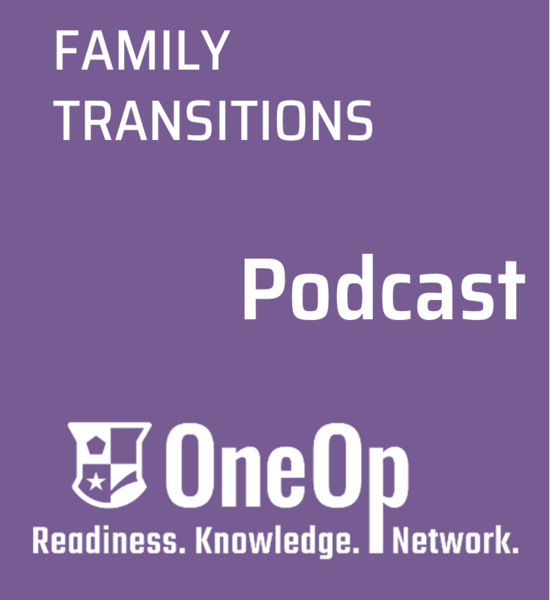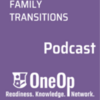How do we start engaging people in marginalized communities and why is this important?
What does it mean to “come in differently?”
Are helping professionals able to tell a well-meaning question from one with judgment behind it?
Dr. Anne Phibbs poses these questions and more in OneOp’s podcast series entitled, Moving Toward Inclusive Practice with Dr. Anne Phibbs. By tuning in, each episode may help you on your journey toward a more inclusive, culturally-informed way of working.
Hosted by Bob Bertsch, these five lively and free-flowing  conversations with Dr. Phibbs address a variety of topics, including privilege and power, race, equity, dis/ability, intersectionality, authentic dialogue, sexual orientation, gender expression, and health disparities. Dr. Phibbs shares tips, ideas, and resources to help you seek out diverse stories, practice humility, listen, ask questions, and engage with others. The episodes support the OneOp Virtual Conference (now recorded), Cultural Competency: Awareness – Action – Advocacy and continue to be listened to and shared across the country.
conversations with Dr. Phibbs address a variety of topics, including privilege and power, race, equity, dis/ability, intersectionality, authentic dialogue, sexual orientation, gender expression, and health disparities. Dr. Phibbs shares tips, ideas, and resources to help you seek out diverse stories, practice humility, listen, ask questions, and engage with others. The episodes support the OneOp Virtual Conference (now recorded), Cultural Competency: Awareness – Action – Advocacy and continue to be listened to and shared across the country.
This podcast series provides a foundation for the 2022 OneOp Military Family Readiness Academy (MFRA) where we will be examining how social justice intersects with the delivery of family programs and services. The MFRA series, Family Well-being: Navigating the Social Justice Landscape, will encourage service providers working with military families and Extension professionals to view social justice as a pathway to family well-being. The academy will kick-off with a live event on June 1st followed by three self-paced courses and two live panel discussions.
Call to Action
- Subscribe and listen to the 5-part podcast series, Moving Toward Inclusive Practice with Dr. Anne Phibbs on iTunes or Stitcher or wherever you download your podcasts
- Download the attached document and use it as a teaching tool in face-to-face and virtual classrooms.
- Download and print Storytelling for Cultural Competence to enhance your cultural competence journey and experience.
- Personal Storytelling Journal - This guided journaling experience encourages self-knowledge, cultivates empathy and connection, and provides a space to practice the vulnerability and authenticity required for cultural conversation. The journal includes prompts for daily journaling and weekly reflection, as well as weekly “Story Tips” to help develop your storytelling skills.
- Advocacy Action Plan - Download the plan to work through creating your own cultural competency, make a plan for working toward those competencies, and reflect on cultural competency as an ever-changing journey.
- Sign up for the MFRA, Family Well-being: Navigating the Social Justice Landscape. Join us to explore and understand social justice and identify barriers that impact military families’ health and well-being. You’ll also gain a better understanding of how you can become a front-line social justice advocate.
- Share Your Work Experiences! Are you a family service provider or educator working with military families who have seen first-hand how social justice issues impact the access and delivery of family services? As part of the MFRA Family Well-Being: Navigating the Social Justice Landscape we invite you to anonymously share your experiences and perspectives about social justice issues. You can share stories of successes, challenges, and anything in between related to your work experiences.
When we embrace a diversity of backgrounds, experiences, and thoughts, we find common interests and promote our shared values. Inclusivity drives innovative solutions and creates an environment in which every person has the space to contribute fully. Together, let’s ensure that our families, colleagues, friends, and communities have a safe and supportive place to live, work, and play - one free from discrimination, hate, harassment, and fear.




Comments (0)